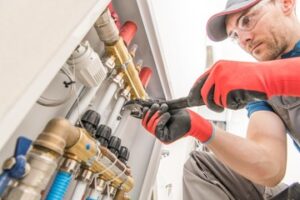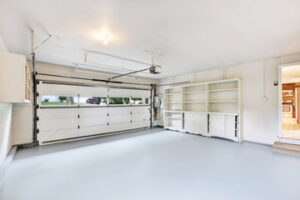Bristol Accident Attorney can help you understand New York’s complex insurance laws and compensation systems. They can also calculate the costs of non-economic damages, such as pain and suffering.
Your lawyer will assess the severity of your injuries and how they have affected your life. They will consider factors such as:

Any accident victim’s primary objective is to receive medical attention immediately after an accident. Not only does this help with your injuries, but it also creates a medical report that can be used to determine the extent of your damages if you file a claim for personal injury. Failure to see a doctor after an accident can be fatal, as some injuries may not manifest symptoms immediately. Furthermore, gaps in treatment can be used by insurance companies to argue that your injuries are not severe enough to require medical intervention.
Prioritize Your Safety: Ensure that your health and well-being is the first priority after an accident. Check yourself for injuries and call 911 for medical assistance if necessary. Exchange Information: Be sure to get the names, insurance policy details, and license plate numbers of the other drivers involved in the crash. Document the Scene: Take photos, if possible, and gather witness statements to help with evidence gathering. Report the Accident: If police officers respond to the accident, they will document the incident in a police report or DMV accident report that will be important for any future claims you file.
Damages
An accident attorney makes sure that victims file for all damages to which they are entitled. They also know which experts to hire and the evidence to gather to help build the strongest possible case. This can mean the difference between a successful settlement or a costly trial.
They review medical records and establish a connection between their client’s injuries and the actions of the defendant to strengthen causation arguments. They assess the extent of a victim’s losses, including current and future expenses, in addition to property damage. They also understand the impact of New York’s comparative fault laws, which can reduce compensation if a jury determines that a plaintiff shares some responsibility for the accident.
Obtaining full compensation after a car accident can be a complex process. The at-fault party may not have sufficient insurance coverage to cover your full losses, or their insurer may deny your claim, forcing you to take legal action against them.
Our lawyers can negotiate with insurance companies and pursue additional compensation through litigation if necessary to ensure that you receive the financial recovery you deserve. We have a proven track record of success and have built a strong network of connections with medical professionals, accident reconstruction experts, and other attorneys who can help support your claim.
We help clients pursue both economic and non-economic damages from the at-fault driver. Economic damages are those related to your financial losses, such as medical bills and lost wages. Non-economic damages include your pain and suffering, which is harder to quantify but can be a significant part of the overall picture.
It is crucial to never give a statement—oral or written—to the other driver’s insurance company after an accident, as this can be used against you. A lawyer can communicate with the insurer on your behalf, protecting you from saying anything that could be used against you later in court. In addition, an experienced attorney will know the proper protocol for dealing with the police after a crash to make sure that any potential evidence is preserved. This can include witness testimony, photographs of the scene, and vehicle damage.
Insurance Coverage
You should review your insurance policy thoroughly to be familiar with all the coverage you have. This will allow you to know the limits and exclusions so that you can make informed decisions. It will also help you in the event that you are served with a lawsuit.
No-fault car insurance coverage provides compensation to accident victims for their basic economic losses. The core of this is personal injury protection (PIP) coverage, which provides up to $50,000 in economic loss coverage for a victim. This coverage is mandatory under New York law.
The other no-fault coverage is medical expense coverage, which covers up to $10,000 in medical bills that are related to a collision, regardless of fault. Another required insurance coverage is property damage liability, which pays for the repair or replacement of vehicles and other personal items that are damaged in an accident.
In addition, you will want to have underinsured/uninsured motorist coverage. This will protect you if the driver who caused the accident has no automobile insurance or if you are struck by a hit-and-run driver. You can obtain this type of insurance coverage through your own vehicle’s policy or the policy of a household member.
If you have medical expenses or other losses as a result of an accident, you should keep track of all your out-of-pocket losses. These include things like the daily rate that you pay to stay at a hotel, mileage incurred driving to and from doctor’s appointments, and other expenses. You should also get a signed letter from your physician that shows how your injuries were related to the accident.
A well-trained attorney will be able to help you calculate your damages, including past and future medical bills and other losses. They will understand how the laws in your state and how insurance companies work. They will be able to explain your rights and how the insurance company is attempting to deny you the compensation you deserve.
Insurance companies try to trick you into thinking that they are going to treat you fairly and will pay all of your damages. They are skilled at making you think that you have little choice in how your case goes. In reality, an experienced accident attorney will guide you through the process and will fight to ensure that you are compensated fairly for your injuries.
Time Limits
When it comes to filing a legal claim following a car accident, time limitations are an important consideration. If you fail to file your case within the statute of limitations, you will be barred from pursuing compensation for your injuries and damages. An experienced attorney can help ensure you meet the applicable deadlines and understand any situations that might warrant an extension to the statute of limitations.
In New York, you generally have three years from the date of your accident to file a personal injury lawsuit seeking compensation for your injuries. If you have lost a loved one in a car accident due to the negligent actions of another, you have two years from the date of their death to pursue a wrongful death claim. However, these time limits are not the same for every type of legal claim.
If you file your claim too late, critical evidence that supports your case may be difficult or impossible to obtain, and the opposing party’s lawyer will have plenty of time to build a strong defense. This is why it is crucial to contact an attorney as soon as possible after your accident.
When choosing a car accident attorney, you should consider his or her track record and reputation for successful outcomes. The more established a Manhattan car accident lawyer is, the better he or she will be able to negotiate settlements and present a compelling argument in court. In addition, well-known attorneys often have a wider network of professional connections that can be helpful when it comes to advocating for clients and accessing additional resources.
It is also important to avoid discussing your car accident or your injuries on social media. Insurance companies and the other driver’s attorneys will be able to use any information you post on social media against you in your case. Furthermore, you should always follow your doctor’s treatment plan and keep records of all appointments and treatments. This will not only aid in your recovery but will also strengthen your personal injury claim.
Additionally, under the discovery rule, you might be able to file a personal injury lawsuit even after the statute of limitations has expired. This exception recognizes that some injuries, such as internal or latent medical conditions, might not become apparent until weeks, months, or even years after the car accident.



